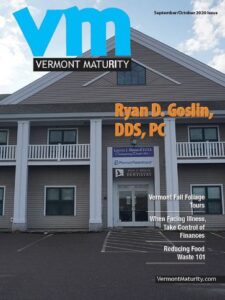
Legal issues that affect people as they age and people with special needs are growing in number. Our laws and regulations are becoming more complex and each state has different laws. Actions taken with regard to a single matter may have unintended legal effects.
It is important for attorneys working with seniors, people with special needs and their families, to have a broad understanding of the laws that may have an impact on a given situation to avoid future problems.
Specialties
Elder and Special Needs Law encompasses many different fields of law. Some of these include:
- Preservation/transfer of assets seeking to avoid spousal impoverishment when one spouse enters a nursing home
- Medicare claims and appeals
- Social Security and disability claims and appeals
- Supplemental and long-term health insurance issues
- Tax planning
- Disability planning, including use of durable powers of attorney, living trusts, “living wills” for financial management and health care decisions and other means of delegating management and decision-making to another in case of incompetency or incapacity
- Access to health care in a managed care environment
- Conservatorships and guardianships
- Estate planning, including planning for the management of one’s estate during life and its disposition on death through the use of trusts, wills and other planning documents
- Probate and administration of estates
- Administration and management of trusts
- Long-term care placements in nursing home and life-care communities
- Nursing home issues, including questions of patients’ rights and nursing home quality
- Elder abuse and fraud recovery cases
- Housing issues, including discrimination and home equity conversions
- Age discrimination in employment
- Retirement, including public and private retirement benefits, survivor benefits and pension benefits
- Health law
- Mental health law
Most attorneys do not specialize in every one of these areas. So when an attorney says he or she practices Elder or Special Needs Law, find out which of these matters the attorney handles. You will want to hire the attorney who regularly handles matters in the area of law of concern to your particular case and who will know enough about the other fields to question whether the action being taken might be affected by laws in any of the other areas of law. For example, if you are going to rewrite your will and your spouse is ill, the attorney needs to know enough about Medicaid to know whether there are legal issues with regard to your spouse’s inheritance.
Attorneys who primarily work with seniors and people with special needs appreciate the complex financial and social decisions their clients face. Elder and Special Needs Law attorneys bring to their practice a knowledge of their clients that allows them and their staff to ignore the myths relating to aging and the competence of seniors and people with disabilities. At the same time, they will take into account and empathize with some of the true physical and mental difficulties that often accompany the aging process. They are tied into a formal or informal system of social workers, geriatric care managers, psychologists and other professionals who may be of assistance to you or your loved one.
Finding an Elder or Special Needs Law Attorney
Your first question may be: How do I find an Elder or Special Needs Law attorney? Before making the effort, step back a moment and try to determine whether you actually have a legal problem in which an attorney needs to be involved. If you’re not sure, ask your clergy, your financial advisor, a social worker, or a trusted friend to help you decide whether this is a legal issue rather than a medical or a social services issue. It serves you well to know that you actually need legal assistance before seeking an attorney.
There are many places to find an attorney in your city or state who specializes in working with the problems facing people as they age and people with special needs. Check with local agencies to obtain good quality local referrals.
If you know any attorneys, ask them for a referral to an Elder or Special Needs Law attorney. An attorney is in a good position to know who handles such issues and whether that person is a good attorney. Such persons are often the best and safest sources of referrals. You can also visit www.naela.org for more information and a list of attorneys in your area.
Take the time to interview prospective attorneys. Not every attorney is right for each client. The attorney/client relationship must be built on mutual trust and understanding. Ask questions about fees and services.
Ask Questions First
Ask lots of questions before selecting an Elder or Special Needs Law attorney. You don’t want to end up in the office of an attorney who can’t help you. Start with the initial phone call. It is not unusual to speak only to a secretary, receptionist or office manager during an initial call or before actually meeting with the attorney. If so, ask this person your questions.
- How long has the attorney been in practice?
- Does his or her practice emphasize a particular area of law?
- How long has he or she been in this field?
- What percentage of his or her practice is devoted to Elder or Special Needs Law?
- Is there a fee for the first consultation and if so how much is it?
- Given the nature of your problem, what information should you bring with you to the initial consultation?
The answers to your questions will assist you in determining whether that particular attorney has the qualifications that are important to you for a successful attorney/client relationship. If you have a specific legal issue that requires immediate attention, be sure to inform the office of this during the initial telephone conversation.
This article was contributed by the National Academy of Elder Law Attorneys.
 Related Articles & Free Subscription
Related Articles & Free Subscription
Free Resources That Can Help with Your Medicare Decisions







Comment here